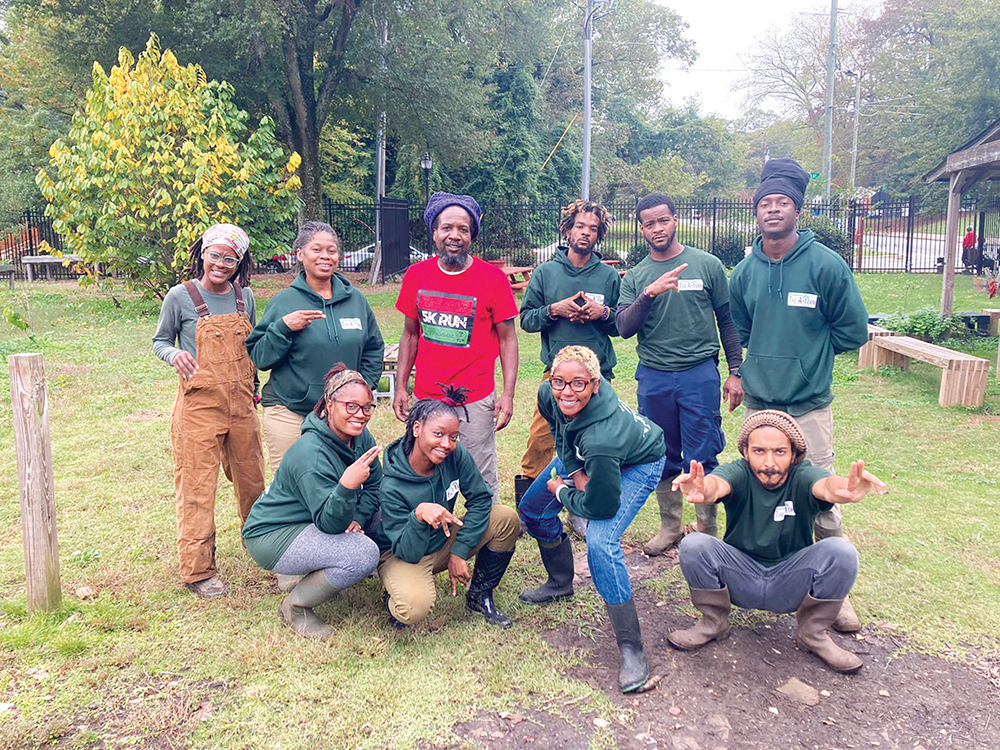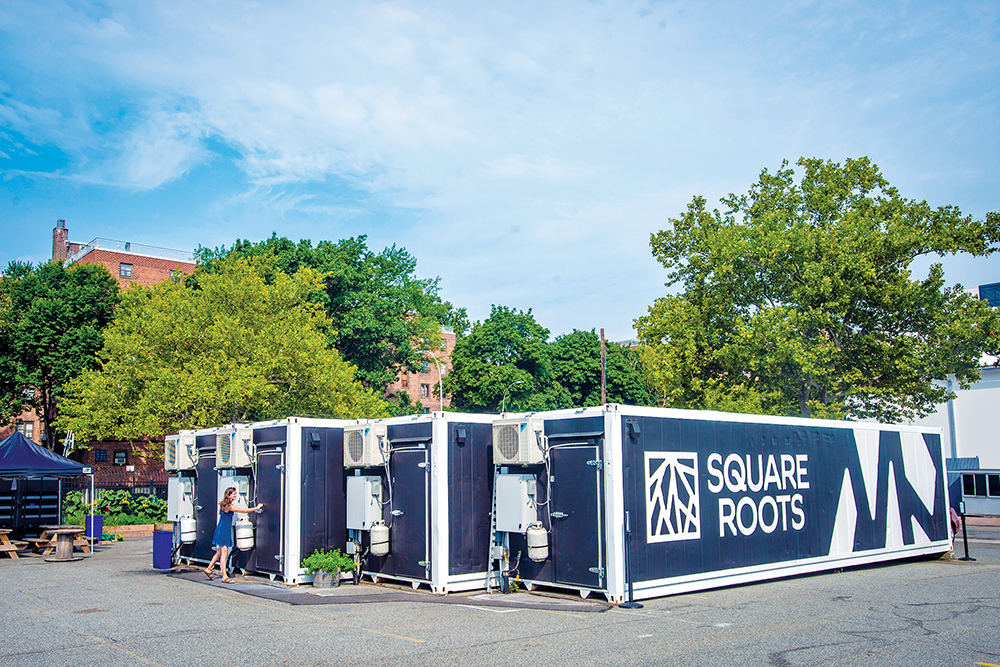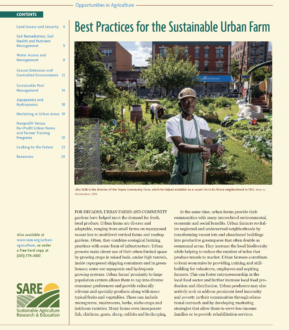Finding long-term, stable access to land is often the biggest hurdle that urban producers face. Because cities generally have higher property values than rural areas, traditional land ownership is cost prohibitive for beginning or limited-resource urban producers. In cities, land access is further complicated by high input and administrative costs (e.g., water, electricity, permit costs, etc.), land use restrictions set by local governments, and competition from developers. Many urban producers get around these challenges by forming lease agreements with private landowners and nonprofit organizations.
Other urban producers rely on creative land-use agreements when starting out. Land for Good, a New-England-based nonprofit, provides technical resources for farmers looking for help securing land. View their toolbox of resources and guides at landforgood.org/resources/toolbox. Among their resources is Farmland Access in Urban Settings, which describes the novel ways urban farmers find land. For example, although nonprofits often focus on charitable and educational activities, they may also rent land to beginning farmers through an urban farm incubator program. Many organizations with a mission to support small farms and local food systems offer fee-based incubator programs. These can be very valuable because they are designed to give new farmers the chance to start their business and to gain both skills and confidence in a relatively low-risk environment. While the specifics may vary from one organization to another, these programs offer new farmers temporary, affordable access to land, supplies and equipment, as well as training in key areas of running a farm business. At the same time, participating farmers can access the organization’s existing networks to begin developing a customer base. Upon completing a program, farmers are often provided technical support in transitioning to their own location.

with a group of young adult students he’s mentoring. Photo by Cashawn Myers, HABESHA, Inc
Atlanta-based HABESHA, Inc. is a Pan-African nonprofit organization dedicated to promoting healthy living and sustainable urban agriculture skills to area residents. They used a SARE grant (EDS20-15) to expand their farmer training program, HABESHA Works, beyond its existing 200 hours of basic course content. The grant allowed them to establish an incubator farm for advanced trainees that focuses on developing their leadership, interpersonal and business management skills. This experience helps trainees to more effectively plan their next steps toward running a successful, long-term farm business.
Community land trusts offer another opportunity for urban producers to access land. Land trusts are nonprofit organizations that preserve land for agriculture and other conservation uses by purchasing the land, putting a development easement on it, and then offering it to producers at a lower rental price.
The challenge of land access can be stressful for beginning farmers, but the public’s increasing interest in healthy, local food options is helping urban agriculture gain ground with local leaders. Examples of favorable policies include property tax credits, discounted utility rates and short-term leases for farming on public land. In recent years, cities like Baltimore have established land-leasing programs for urban farmers to use vacant, city-owned lots. Urban farmers who are farming on city-managed land can apply for a five-year lease with an option to renew. While there is no long-term land security with these agreements, they do allow farmers to build their production and management skills and to run their operation for a considerable amount of time.
Whether owning or leasing, urban producers need to be aware of and compliant with local policies and zoning regulations. When surveying a potential lot for your urban farm, begin by carefully researching its land use, boundaries and transfer history. Your county registry and local department of zoning and planning are important resources for determining both property records and appropriate uses for land within city limits.

Container farms, such as these operated by Square Roots in Brooklyn, N.Y., can allow for high-intensity food production in small spaces, offering one possible solution when urban land options are limited. Photo by Preston Keres, USDA
The USDA Web Soil Survey provides soil data and maps you can use to find information about a property’s soil history and quality, including tutorials on how to use the survey. See the next section, Soil Remediation, Soil Health and Nutrient Management, for more on the connection between past land uses and current soil conditions.
It’s important to get terms in writing when negotiating land access agreements. An attorney can help you navigate the terms of a lease agreement. The Sustainable Economies Law Center includes a library that highlights important elements to include when negotiating land-use agreements. These include the size of the property to be used, allowable activities, the lease duration, right of entry, growing practices and equipment to be used, payment and liabilities, among others. The library highlights other relevant urban agriculture topics, such as planning and zoning, building codes, insurance and liability. It also includes topics of special interest for both nonprofit and commercial urban producers.
Nationally, urban agriculture has received increased attention and dedicated support through the 2018 Farm Bill. The USDA Office of Urban Agriculture and Innovative Production has been established to promote urban farming. Urban farms are now eligible to apply for a farm number through the USDA Farm Service Agency (FSA), which is needed when applying for federal funding, including cost-share programs, incentives and competitive grants. These sources of funding can’t be used to rent or purchase land or buildings, but they can help you to defray other costs associated with starting and operating an urban farm. The FSA also provides microloans of up to $50,000 to eligible urban producers, and some of these options can be used to acquire land. It’s important to know that FSA requires applicants to have at least three years of farming experience, defined as having produced and sold at least $1,000 of agricultural products each year. Other federal, state and local resources may be available to support land access. Take a look at the Guide to Financing the Community Supported Farm, produced by the University of Vermont Center for Sustainable Agriculture with support from a SARE grant (ONE11-146).
